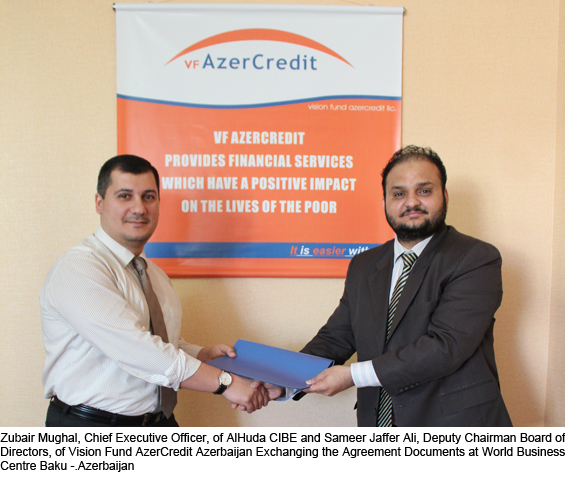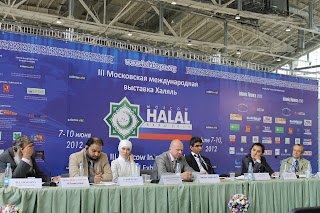CAIRO – In an effort to accelerate integration of the sizable
minority, a Muslim body in Spain is planning a seminar on Tuesday, March
12, to improve access of Spanish Muslims to halal food and services.
“Halal is a global concept that refers to the set of practices and conducts that are permitted, according to the Shari`ah or Islamic law,” the Halal Training School, a training center sponsored by the Islamic Council of Cordoba, said in a press release obtained by On Islam.net.
“For this reason, the “II Seminar: Halal, a global concept”, has been organized with the motto "A door to integration and the opening of new markets".
The seminar aims to help Muslims get due information about halal concept, its fields of application, standards, difficulties and developments in the market.
“The Halal Institute continues working, with this line of training and dissemination of the Halal concept, towards the normalization and social integration of the Muslim community, as well as improving their access to Halal food and services,” the release said.
The seminar is recognized by the University of Cordoba and sponsored by the Campus of international excellence (CEIA3) and the Halal Institute.
It will be opened by José Carlos Gomez, Vice Provost of postgraduate studies and continuing education of the University of Cordoba.
Leading among attendees are Librado Carrasco, Dean of the Faculty of Veterinary Medicine at Cordoba, Mariam Isabel Romero, General Manager of the Halal Institute, Natalia Andujar, Director of Educaislam, Salud Serrano, lecturer at the UCO and Hanif Escudero, the Director of the Halal Training School.
The concept of halal, -- meaning permissible in Arabic -- has traditionally been applied to food.
Muslims should only eat meat from livestock slaughtered by a sharp knife from their necks, and the name of Allah, the Arabic word for God, must be mentioned.
Now other goods and services can also be certified as halal, including cosmetics, clothing, pharmaceuticals and financial services.
Halal food is consumed not only by 1.5 billion Muslims around the world, but also by at least 500 million non-Muslims in the $2 billion global industry.
Halal Culture
A series of lectures will be held as part of the seminar to spread comprehensive theoretical knowledge of halal production and services.
“For the Halal school it is important to guarantee high quality learning,” the press release said.
“For this reason, the training is imparted in an academic context, guided by experts in Islamic food legislation, in Shari`ah and Islam and by professionals in the food industry.”
Several lectures will be given by experts as Manuela Jodral, Professor of Food Science of Food, Said Bouzraa, Chief Auditor of Aud Halal, and Flora Saez, Director of Communications of Nur & Huda Travels.
The event will also conclude the second course of technicians in production of Halal food, which has been held since January 14.
Practical courses would also be offered to attendants.
“The day also includes activities such as Halal Cooking Show led by Ibrahim Romero, Halal chef who will prepare a menu, while telling us his tricks and techniques for cooking Halal.”
Spain has a Muslim minority of 1.4 million, making up about 3 percent of the country’s population, according to the Islamic Commission of Spain.
Islam is the second religion in Spain after Christianity and has been recognized through the 1967 law of religious freedom.
“Halal is a global concept that refers to the set of practices and conducts that are permitted, according to the Shari`ah or Islamic law,” the Halal Training School, a training center sponsored by the Islamic Council of Cordoba, said in a press release obtained by On Islam.net.
“For this reason, the “II Seminar: Halal, a global concept”, has been organized with the motto "A door to integration and the opening of new markets".
The seminar aims to help Muslims get due information about halal concept, its fields of application, standards, difficulties and developments in the market.
“The Halal Institute continues working, with this line of training and dissemination of the Halal concept, towards the normalization and social integration of the Muslim community, as well as improving their access to Halal food and services,” the release said.
The seminar is recognized by the University of Cordoba and sponsored by the Campus of international excellence (CEIA3) and the Halal Institute.
It will be opened by José Carlos Gomez, Vice Provost of postgraduate studies and continuing education of the University of Cordoba.
Leading among attendees are Librado Carrasco, Dean of the Faculty of Veterinary Medicine at Cordoba, Mariam Isabel Romero, General Manager of the Halal Institute, Natalia Andujar, Director of Educaislam, Salud Serrano, lecturer at the UCO and Hanif Escudero, the Director of the Halal Training School.
The concept of halal, -- meaning permissible in Arabic -- has traditionally been applied to food.
Muslims should only eat meat from livestock slaughtered by a sharp knife from their necks, and the name of Allah, the Arabic word for God, must be mentioned.
Now other goods and services can also be certified as halal, including cosmetics, clothing, pharmaceuticals and financial services.
Halal food is consumed not only by 1.5 billion Muslims around the world, but also by at least 500 million non-Muslims in the $2 billion global industry.
Halal Culture
A series of lectures will be held as part of the seminar to spread comprehensive theoretical knowledge of halal production and services.
“For the Halal school it is important to guarantee high quality learning,” the press release said.
“For this reason, the training is imparted in an academic context, guided by experts in Islamic food legislation, in Shari`ah and Islam and by professionals in the food industry.”
Several lectures will be given by experts as Manuela Jodral, Professor of Food Science of Food, Said Bouzraa, Chief Auditor of Aud Halal, and Flora Saez, Director of Communications of Nur & Huda Travels.
The event will also conclude the second course of technicians in production of Halal food, which has been held since January 14.
Practical courses would also be offered to attendants.
“The day also includes activities such as Halal Cooking Show led by Ibrahim Romero, Halal chef who will prepare a menu, while telling us his tricks and techniques for cooking Halal.”
Spain has a Muslim minority of 1.4 million, making up about 3 percent of the country’s population, according to the Islamic Commission of Spain.
Islam is the second religion in Spain after Christianity and has been recognized through the 1967 law of religious freedom.

